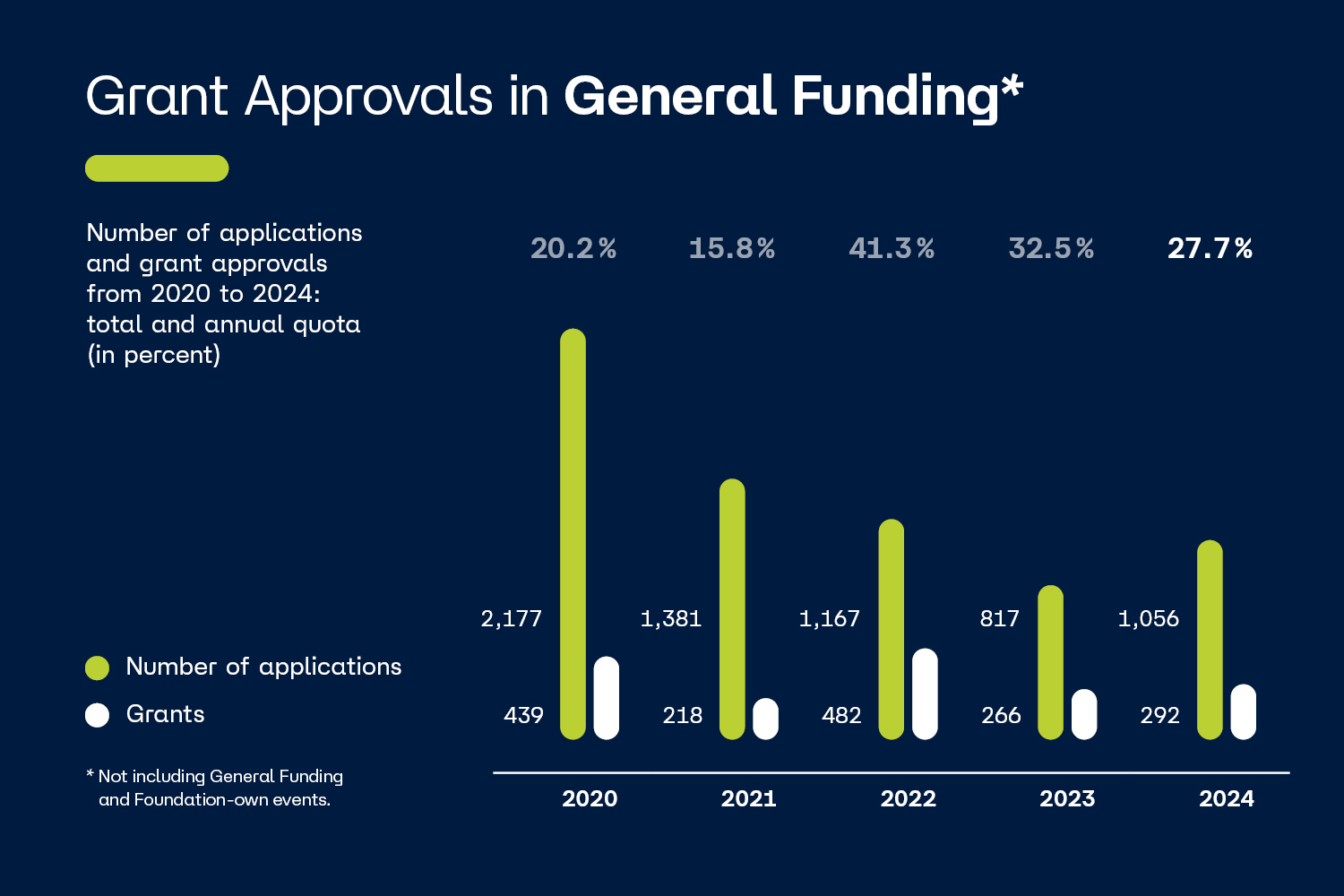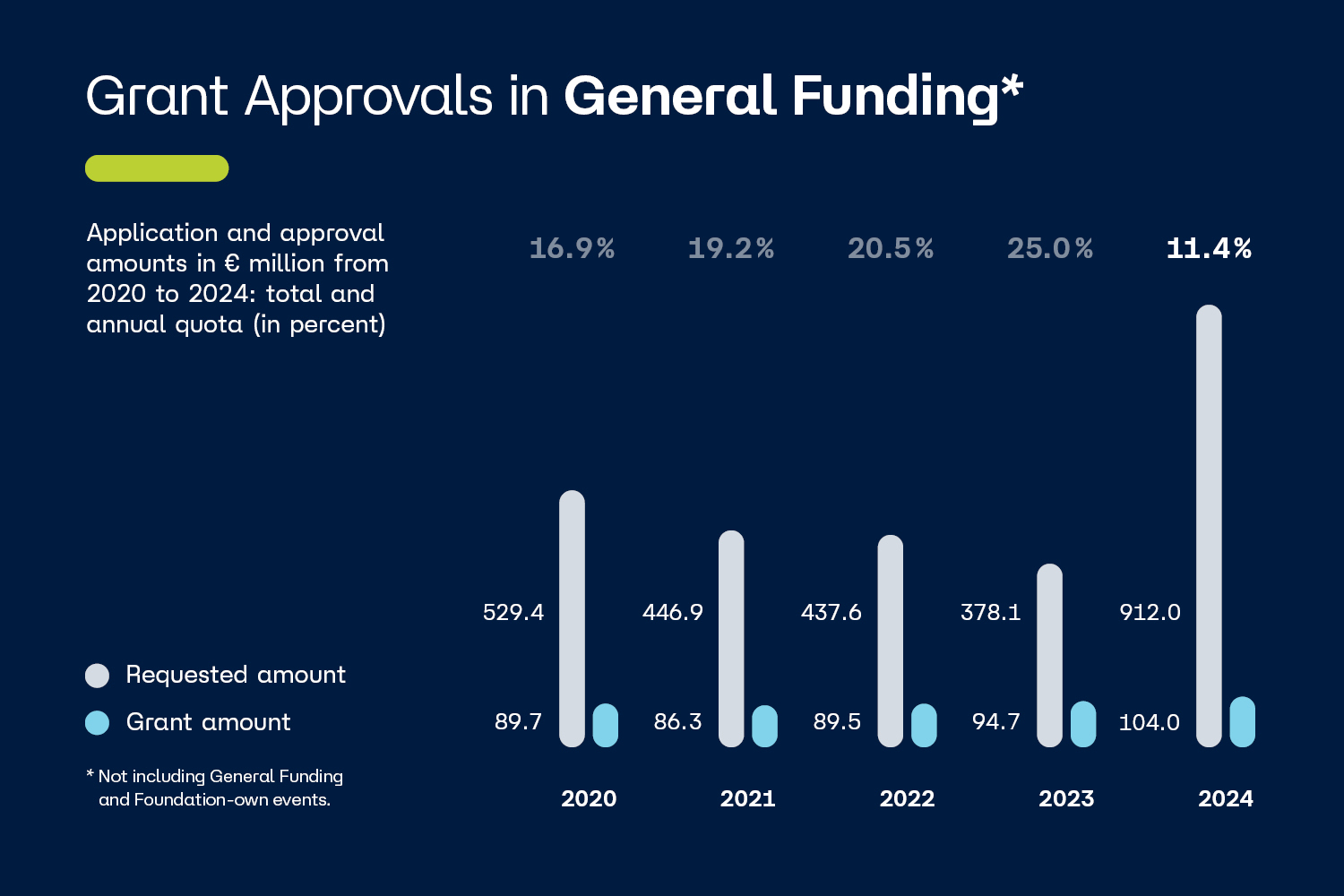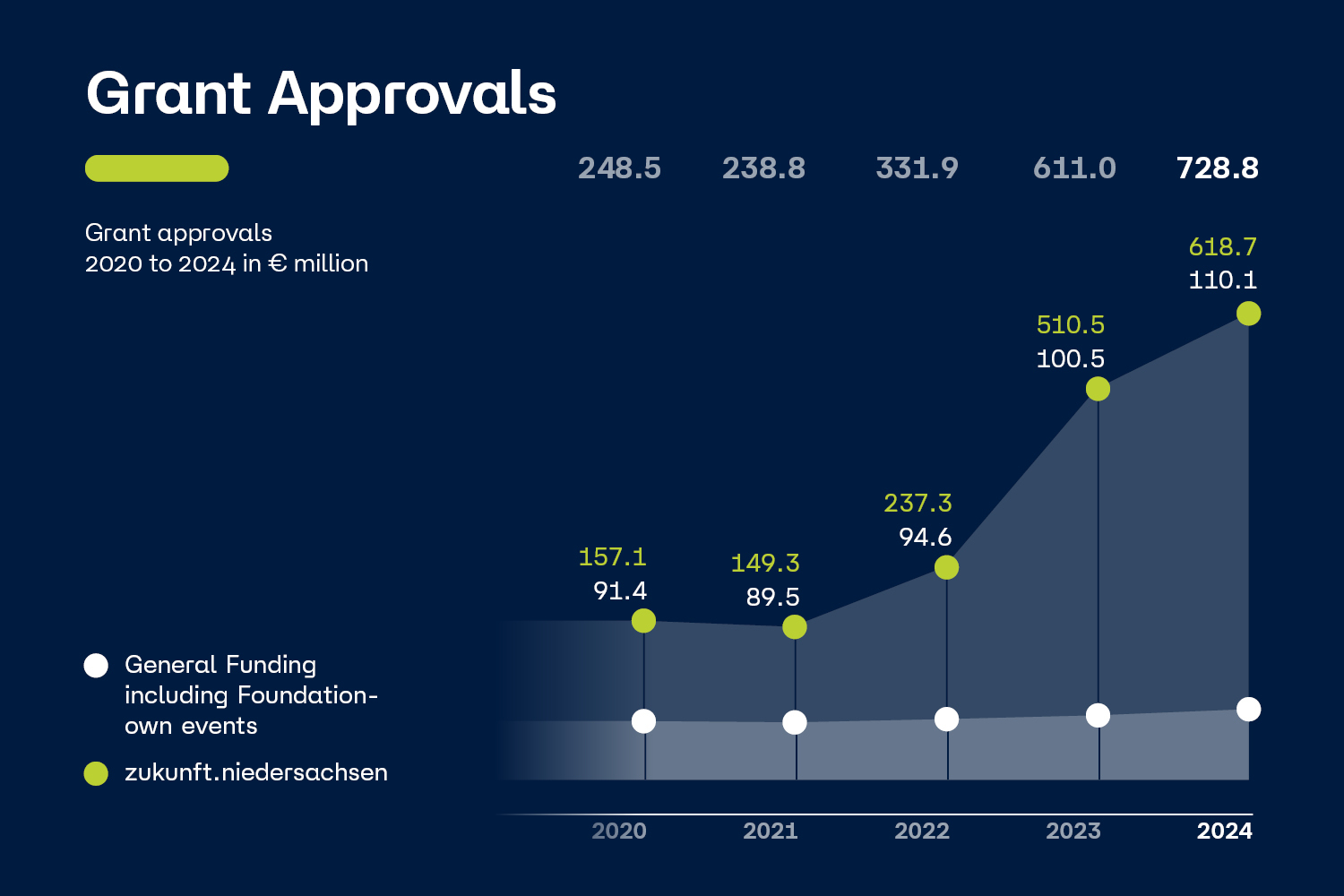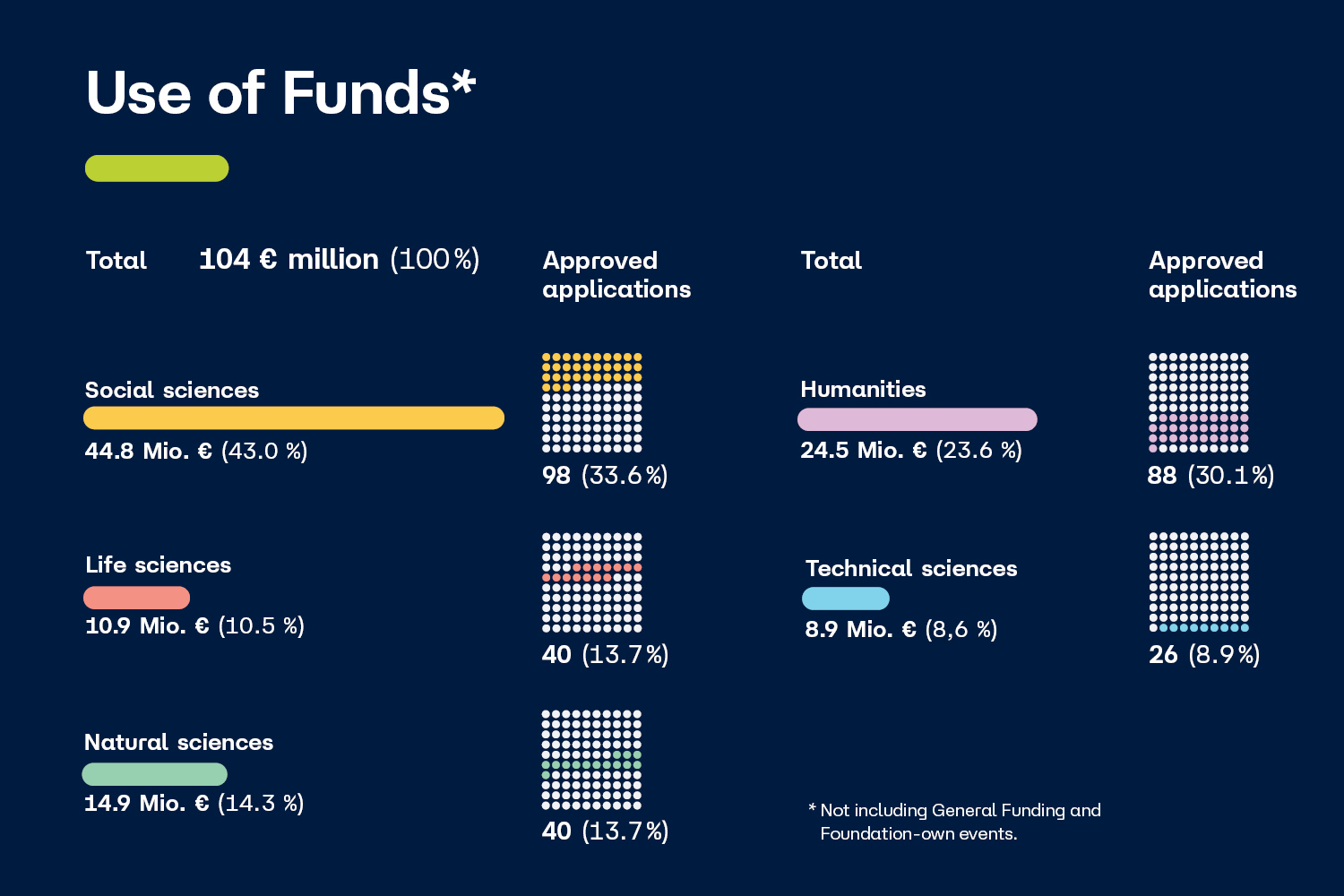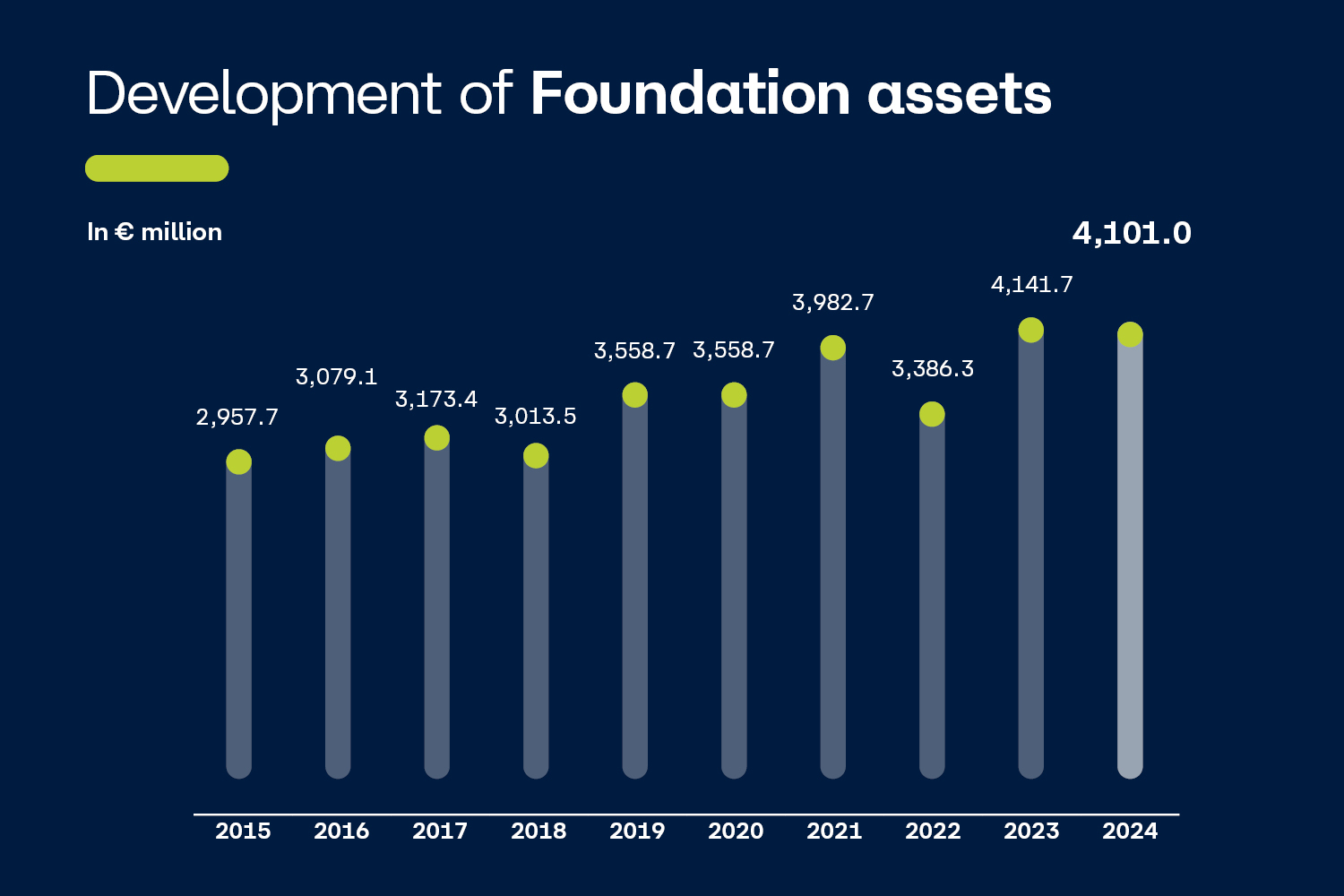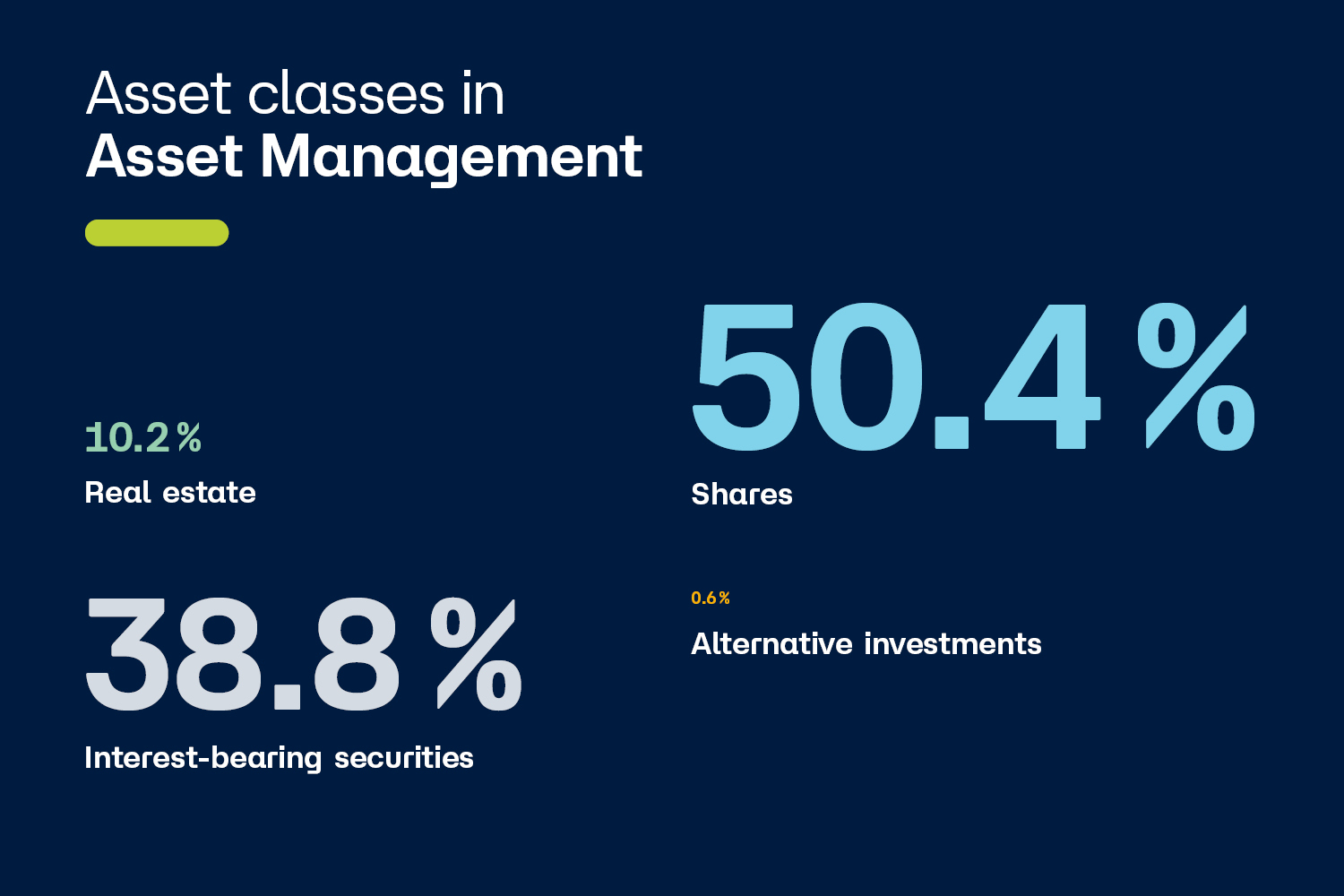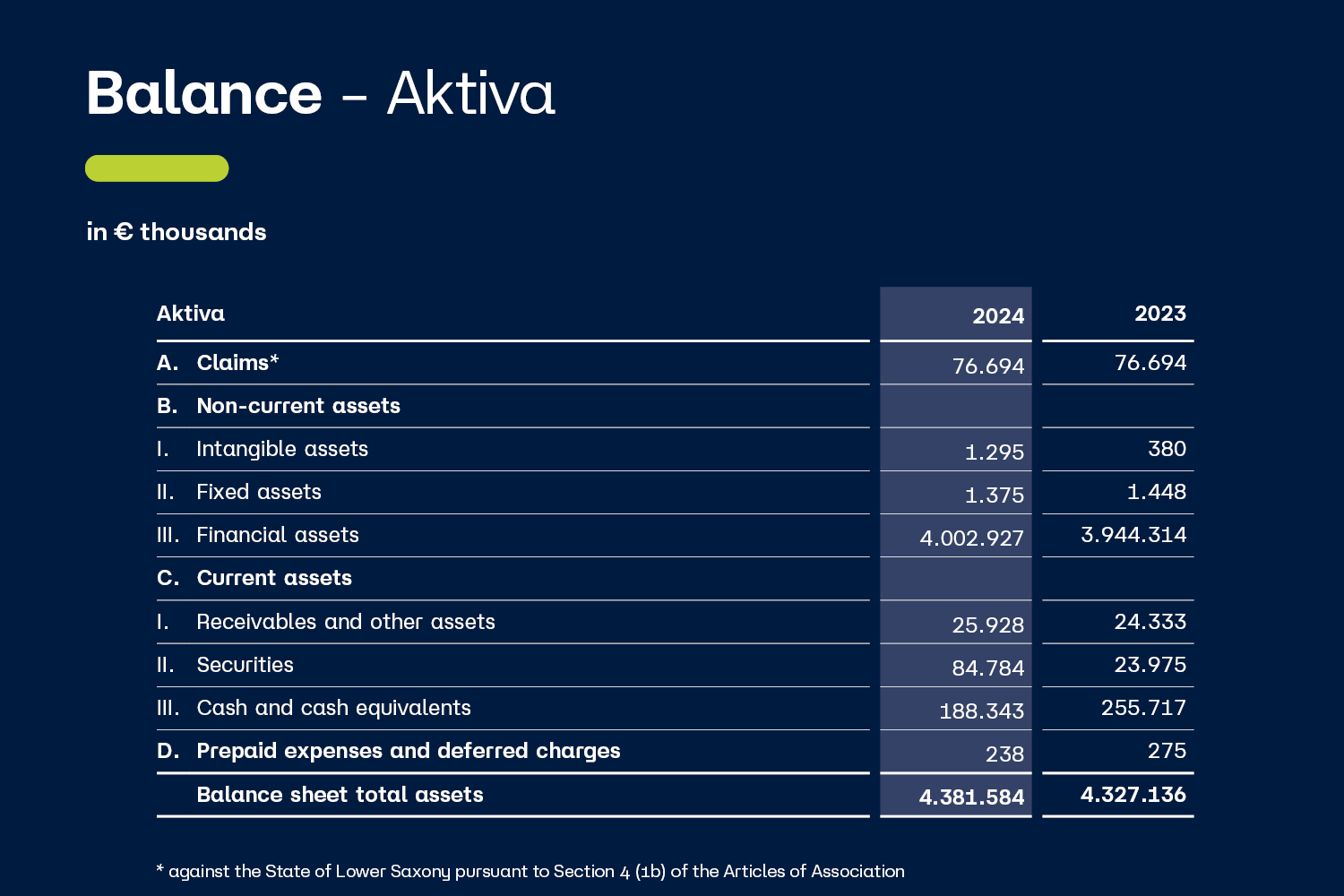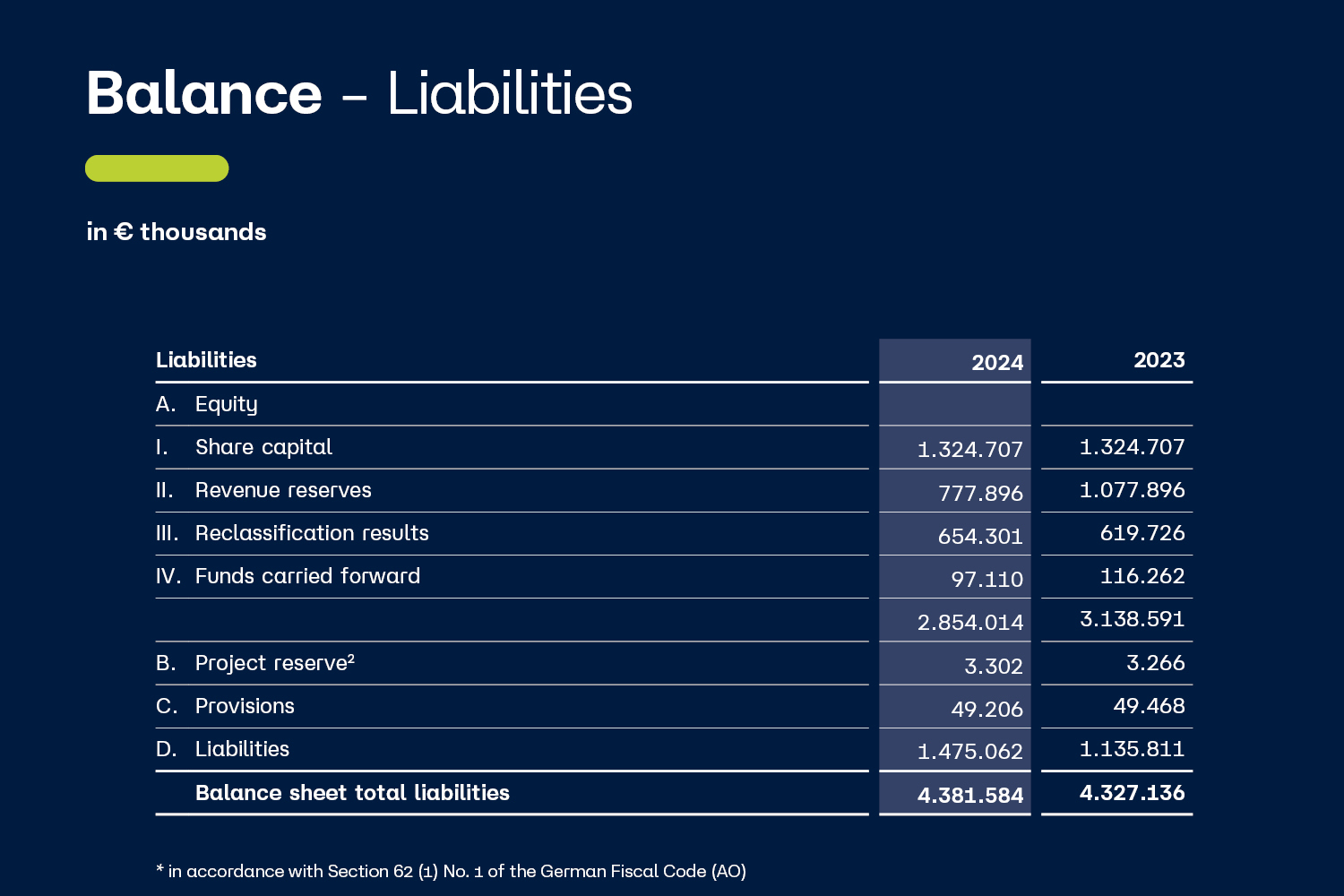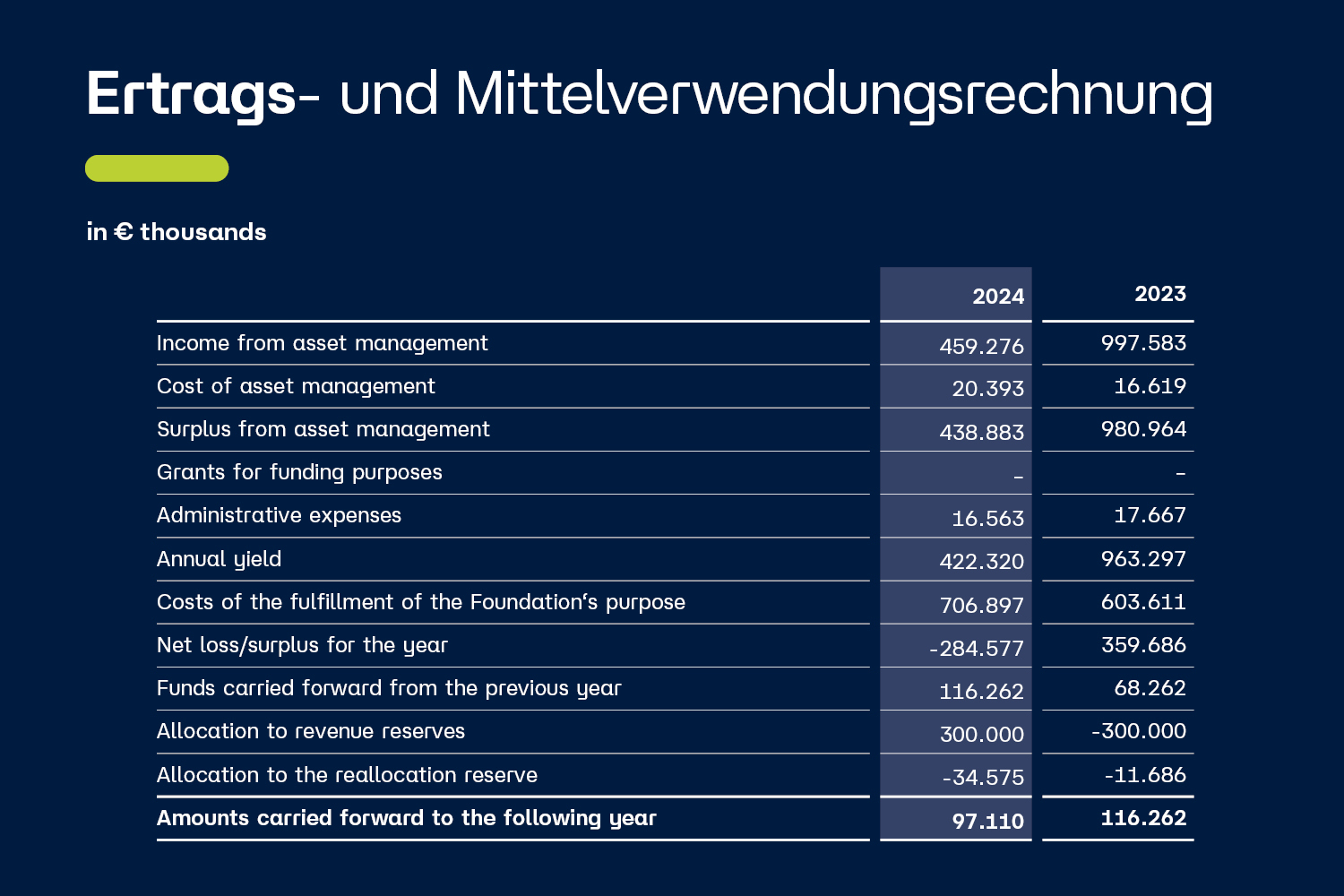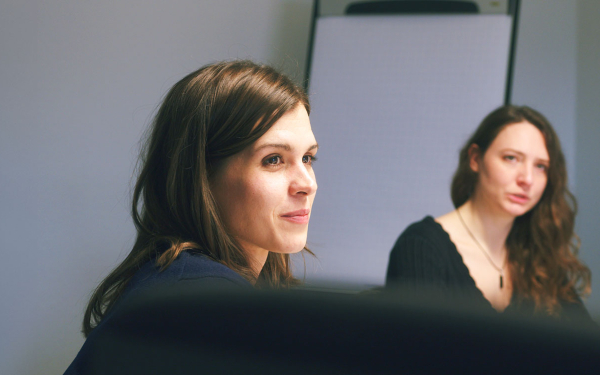status 2024 – Annual Report of the Volkswagen Foundation
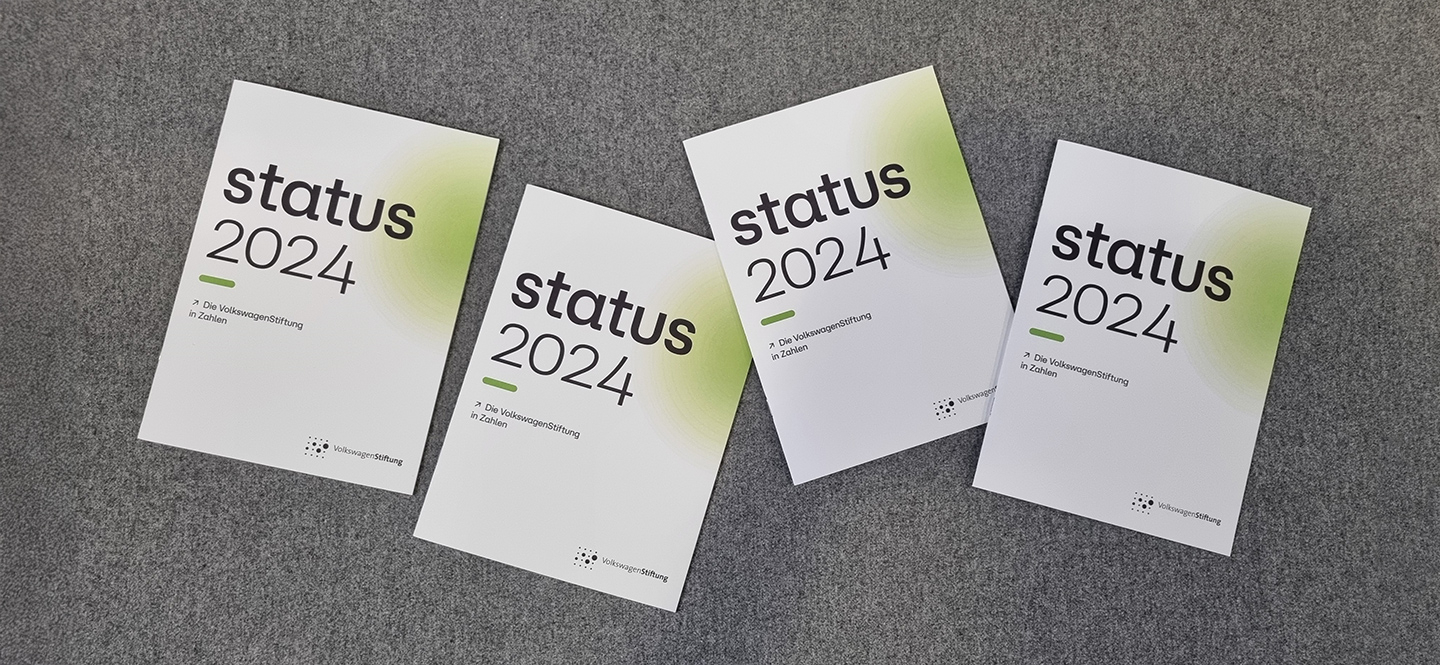
VolkswagenStiftung
In 2024, the Volkswagen Foundation approved 728,8 million euros for scientific projects. Figures, data and facts from our 2024 annual report.
At a glance: The most important figures, data and facts
Audit
The auditing firm BDO AG, Hanover, has audited the annual financial statements 2024 of the Volkswagen Foundation and issued an unqualified audit opinion.

Foundation
The Volkswagen Foundation is the largest private research funding organisation – and one of the largest foundations in Germany. Its purpose is to support research and teaching in the humanities, the social and natural sciences, as well as life and technical sciences. It was established more than 60 years ago by the Federal Republic of Germany and the State of Lower Saxony as an independent, non-profit foundation under civil law. The Foundation has its offices in Hanover.

Capital and Funding
The Foundation capital currently amounts to around €4.1 billion. The amount available for funding comes from the investment of this capital and is mainly used for general funding purposes. In addition, there are profit entitlements (mainly dividends) on 30.2 million Volkswagen trust shares held by the State of Lower Saxony. This funding is allocated to the zukunft.niedersachsen programme, which is jointly managed by the Foundation and the Lower Saxony Ministry of Science.

Strategy
The funding portfolio is structured around four profile areas:
- Exploration,
- Social Transformations,
- Understanding Research – Reflecting on and Practice of Science,
- zukunft.niedersachsen.
The Foundation also offers various funding opportunities in the field of science communication.

Funding Concept
The Foundation has developed four guidelines for its funding practices.
- Providing Impetus: The Foundation aims to play a pioneering role by supporting innovative pilot projects.
- Taking Risks: Creating spaces for experimentation – also for talented early career researchers.
- Crossing Borders: Transnational, interdisciplinary and transdisciplinary projects are core features of its funding.
- Shaping Structures: Funding should trigger lasting impact, a goal which the Foundation systematically analyses and pursues with a view to sharing its expertise with others.

Sustainable Investment
The Foundation’s asset management has been taking aspects of sustainability into account since 2011. The entire equity and bond portfolio is continuously monitored to ensure that ESG criteria are met. ESG defines a standard that can be used to assess an organisation’s economic sustainability. The challenge for the Foundation is to achieve the highest possible level of sustainability with its investment strategy – without jeopardising the mandate set out in its statutes, which is to invest the assets as profitably as possible.

Organisation
The Volkswagen Foundation currently employs 115 people, mainly in the three departments of funding, asset management, finance, and administration. Four staff units report directly to the CEO Dr. Georg Schütte, who heads the Foundation. The supervisory and control body is the Supervisory Board, which comprises 14 individuals from academia and other areas of society.

zukunft.niedersachsen
With a joint funding programme the Volkswagen Foundation and the state government of Lower Saxony aim at promoting research, education and transfer in Lower Saxony. The aim of zukunft.niedersachsen is to make the state significantly more visible as a centre of science in the context of domestic and international competition. The focus is on quality-assured selection processes and the ongoing identification of future-oriented fields of research. Three priority areas are currently being specifically promoted: digitality, transformation, and cutting-edge research.

History
The Foundation owes its existence and its name to an agreement between the Federal Republic of Germany and the State of Lower Saxony concluded in 1961. The Foundation was subsequently established with proceeds generated by the privatisation of the Volkswagen manufacturing company. With seat in Hanover, it started operations in 1962 as an independent, private and charitable foundation under civil law – and not as a corporate foundation.
Foundation News
New Funding Offers (2024)
- Night Science – Space for the Creative Mind Interdisciplinary tandems comprising two scientists will have the opportunity to join forces in a research context to develop unconventional ideas and hypotheses
- Open Up – New Research Spaces for the Humanities and Cultural Studies We are looking for projects that explore entirely new research spaces and topics
- The (De)tabooing of Science and Research How taboos arise in science, manage to persist, and may also be dissolved (theme week on this topic from 17 to 19 September 2025 in Hanover)
- NEXT – Quantum Biology Proving the existence of quantum effects in biological systems (one-time call for proposals; closed)
Scoping Workshops
Intensive exchange of views is at the forefront of this experimental event format. In the intensive Scoping Workshops, around 30 participants develop options for advancing their joint fields of research and creating new impact. The Scoping Workshops take place in Hanover, and the dates are set by the Foundation. The topics are chosen by the applicants.
Impact Monitoring
Over a two-year period, the funding department has developed a concept for impact monitoring tailored to its own specific needs. The Fraunhofer Institute for Systems and Innovation Research (ISI) is the Foundation’s partner in this process. The objectives are to enhance support for strategic decision-making through providing more empirical evidence and enabling structured tracking to verify whether funding offers are achieving their defined goals.

Reform of the Statutes
A revised form of the Foundation's statutes has been in effect since March 2025. This was prompted by recommendations resulting from an overall evaluation of the Foundation, an audit carried out by the Federal Audit Office, and the reform of foundation law. One of the changes is that the former Board of Trustees will now act as a supervisory and control body, a Supervisory Board, while a new CEO is now anchored in the statutes and will be responsible for the management. This function is taken on by the former Secretary General, Dr Georg Schütte. From 1 January 2028, the statutes provide for an Management Board consisting of at least two persons.

Administration of Funding
At the turn of the year 2024/25, the Foundation launched its new digital system in the area of Funding Administration. The transition from the old to the new system took a great deal of time and effort, so it is all the more gratifying to know that we now have a tool that makes many things much easier for both employees and applicants, such as the electronic submission of applications, project outlines and cost projection. In the future, funding requests and expenditure reports will also be handled via the funding portal.


